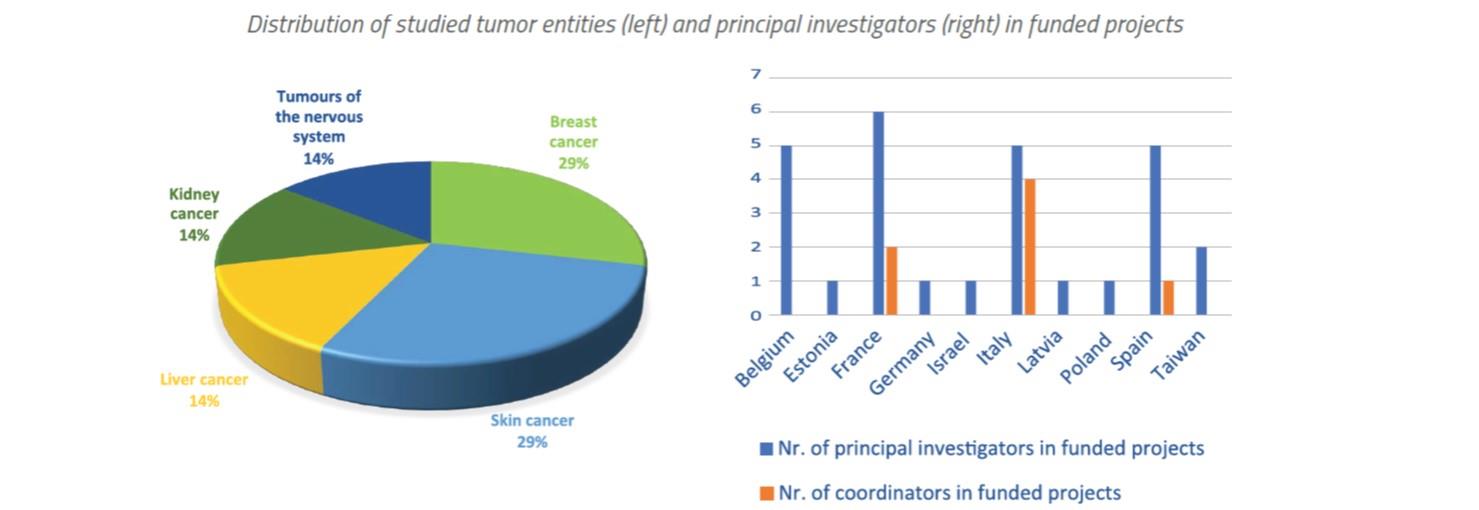Introduction
The JTC 2015 on “Immunology and immunotherapy of cancer: strengthening the translational aspects” aimed at developing transnational innovative projects in translational cancer research, clearly oriented towards a rapid application of new, more selective and effective tools and strategies for the immunotherapy of neoplastic diseases.
The call was motivated by the notion that, despite cancer diagnosis and treatment have improved significantly over the last decade, and many therapeutic strategies have been explored and developed, in many cases these modalities, along with surgery, are not efficacious in eradicating the disease and are often characterized by an elevated toxicity. Furthermore long-term survival rates for most patients with advanced cancer remain low, thus there is a need for cancer treatments with favourable benefit and toxicity profiles that may lead to an improvement of the outcome. Nowadays large efforts are placed in identifying potential novel therapeutic targets and developing more selective, effective and less toxic therapeutic agents and interventions.
The recent increased understanding of the human immune system, of the basic mechanisms involved in the recognition of cancer cells by innate and acquired immune cells and of escape pathways put in place by cancer and its microenvironment, have paved the way for the development of innovative immunotherapeutic strategies.
In addition, many studies have reported that chemotherapy drugs and irradiation can be helpful in breaking immune tolerance and inducing microenvironment for adoptive cell therapy. It is now widely recognized that cancer immunotherapy, mainly due to the use of checkpoint inhibitors, is one of the major breakthroughs of the last years in medicine with profound impact on the quality of life and long-term survival in a good proportion of cancer patients affected by a variety of solid and liquid cancers.
Most importantly, the intersection of cancer immunology with cancer genomics through the diffused use of next generation sequencing has provided increasing evidence that efficacy of checkpoint inhibitors is intertwined with the individual mutational burden of cancer cells. In such a context, the necessity to develop personalized approaches to cancer immunotherapy aiming at improved patient care (efficacy and safety), and cost-effectiveness, currently represent a major challenge. Taking this into account, translational research directed to enhance the development of personalized immunotherapy against cancer is now considered a research topic boding a previously unexpected potential high impact on the management of cancer patients, thus deserving special attention in the promotion of the international cooperation in this field.
Three main aims of the call were identified:
Aim 1: Identification and validation of shared or personalized mutated human tumour antigenic targets.
Aim 2: Development of new and combined immunotherapeutic strategies for cancer patients.
Aim 3: Translational research for clinical application of cancer immunotherapy.
The call was launched in December 2015 by 15 organisations from 11 countries; 33 proposals submitted involving 144 research groups.
At the completion of the call, 7 transnational projects, involving 35 research groups, were selected for funding, with a total allocated budget of 6,3 M€.



